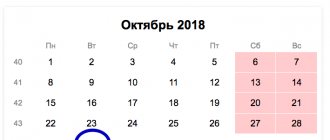Possible consequences of non-payment
If monthly payments are not made, the banking institution always takes quite strict measures. The borrower must contact the bank in advance and write an application for a special deferred payment. This service is valid if the client has really serious reasons why he is temporarily unable to make monthly mortgage payments.
If the client does not contact the banking institution and ignores calls from the credit manager, the bank has the right to immediately go to court, which is unlikely to be on the side of the borrower. As a result, you may lose the mortgaged property, and all penalties and fines will have to be paid additionally.
In case of non-fulfillment of debt obligations, the bank also engages the assistance of collection services to clarify the circumstances of non-payment.
What happens if you don't pay your mortgage?
Considering that the financial situation refers to things that are not completely stable, then for their own confidence, borrowers insure their money, and banks, in turn, also do not stand aside (each clause of the contract is carefully thought out).
In order to avoid problems and penalties during the period of concluding a loan agreement with a bank, you must first calculate everything taking into account the dynamics of accrual and the amount of mortgage overpayments.
No special consequences are expected if the borrower is several days or weeks late in payment and is soon able to repay the current payment.
If you do not have the money to repay the issued loan, then you should not delay in taking any measures. A fine and subsequent action by the bank against the borrower cannot be avoided if the mortgage is not paid . The banking institution reacts quickly to delays and begins to act, not without the participation of the law, to return its funds.
But you shouldn’t be afraid to take out a mortgage, because the dream of owning your own home will remain a dream.
Procedure for the borrower in case of late payment.
The bank has the right to take certain measures if you do not repay the loan in good faith:
- Notify about debt.
- File a claim for forced seizure of real estate.
- Accrue interest under the agreement in proportion to the debt or remaining payment.
- Give the debt to a collection agency.
Video on the topic:
All the consequences of a mortgage are reflected in the credit history, which exists not only for one bank, but is the same for all financial institutions for any borrower. And before approving subsequent loans, the bank will refer to such data and, based on it, decide whether to provide a loan to this borrower.
When calculating a mortgage, take into account the banks' obligation to transmit all information about the loan to the Credit Bureau.
You can suffer from several delays for years, so it is better not to allow them on time, otherwise nothing good will come of it. No borrower can hide from the terms of a loan agreement , since any bank acts by agreement with the client.
What can the bank do?
If there is no monthly payment on a mortgage loan, the bank may take a number of measures against the defaulter
:
- Daily calls to find out the reasons for the existing mortgage loan delinquency. Additionally, the client can be sent SMS notifications about overdue payments;
- Resolution of all arising disputes out of court. To do this, the client may be called to the financial institution to find out the reasons for non-payment of the loan and possible adoption of alternative solutions in the form of refinancing the mortgage;
- The bank has the right to sue the defaulter on the loan if there are facts of long-term non-payment of the mortgage loan;
- The forced adoption of a court decision to collect all existing mortgage debt together with the accrual of interest.
Moreover, if the client is not present at the court hearing, the mortgaged property pledged by the banking organization that went to court can be sold at auction at a reduced cost.
What are the risks of defaulting on a mortgage?
A mortgage loan imposes serious obligations on the borrower and violation of them entails serious consequences from fines and damaged credit history to loss of an apartment.
However, situations are different, and the borrower is not always responsible for them. What to do if your mortgage loan is behind on payment? Late payment usually occurs one day after the date of depositing money into the bank account, but some credit institutions allow short delays (up to five days). You can familiarize yourself with the detailed terms and conditions during the execution of the contract.
To avoid any omissions or delays due to the fault of the bank, payment is provided in all possible ways:
- at the cash desks of a bank branch;
- in terminals of all banks, including the bank that issued the loan;
- postal transfer;
- payment via mobile and web applications;
Also, many banks offer clients to activate the auto-payment service, the condition for which is to have a debit bank card or an account with the same bank. This is the easiest way to avoid delays, because you no longer need to remember the dates, the money will be debited automatically.
What will happen to the apartment?
If the amount of debt due to non-payment of mortgage is more than 5%
of the total loan debt, the bank has the right to seize real estate by law. If the amount owed is below this amount, the banking institution may seize the collateral. An apartment owned by a bank can be sold at auction at any time. At the same time, the banking institution sets a price much lower than the market price.
It is important for any financial organization to receive on time not only the total amount of the loan taken, but also all accrued interest, fines and penalties. At the same time, the bank is guided by a policy in which, when selling an apartment at auction, the funds received from the sale are spent first of all on paying off fines, then interest, and only then the main mortgage loan is paid off. As a result, in some cases, the amount received from the sale of a home at auction is not enough to repay the principal debt. According to the court's decision, the remaining amount will be written off monthly from the borrower's earnings.
What does the bank do if a mortgage payment is late?
First of all, the organization tries to notify the borrower about the delay and contact him, co-borrowers on the loan or other contacts specified when concluding the agreement. The bank also tries to contact the client at the place of work and specified place of residence.
If the borrower does not contact for more than six months, the bank goes to court. Until this period, the bank can usually delay the appeal, because incurring legal costs is an expensive matter. An exception is the case when the borrower has not made a single payment since receiving the loan, then the bank considers that the loan was taken for the purpose of non-payment.
The task of the judicial procedure is to determine the fate of the collateral property, that is, the acquired living space. The borrower has a chance to prevent it from being confiscated. To do this, he needs to provide evidence that the reason for the delay is valid.
If the debtor does not appear at court hearings, the apartment will be confiscated and sold at auction, and those living in the apartment will be discharged. The proceeds from the apartment will be used to eliminate the debt and pay bank expenses. The balance, if any, is due to the borrower.
In addition, the bank can transfer the debt to collectors who will collect it using legal and, unfortunately, very often illegal methods. If you or your loved ones receive threats from them, then this is a reason to contact the police.
Bank actions
What will the bank do if you don’t fulfill your mortgage obligations? Much depends on the situation and the capabilities of the banking institution.
Every month, problem debts of borrowers are monitored and become a problem both for the debtor and for the bank itself.
The diagram shows that the problem of overdue loans in Russia was and is.
Going to court and legal protection is a very delicate issue, and therefore it is impossible to solve such a problem in one month. You shouldn’t think, “I’m paying at least something on the mortgage,” but in reality, you’re plunging into a hole of debt every month, trying to get out of an unstable situation.
Debtors’ fears about untimely repayment of a bank loan are quite justified, since a banking institution can legally use different methods:
- Penalties and fines.
- Eviction of the borrower from the mortgaged property.
- Seizure of other property.
- Confiscation of vehicles and other things.
Recommended video for viewing:
Negative scenarios can be avoided if the reverse mechanism is started in time. This way you can apply for a loan deferment or a “freeze” of your mortgage, if such a service is provided by the bank (this is not specified in the agreement).
Using the example of Sberbank
What will Sberbank do if you don’t pay your mortgage? This bank has a special department that works with problem debts.
The agreement is transferred to this department if the client does not repay the loan taken for more than three months . Before the specified period, the credit history will not be damaged, therefore, apparently, Sberbank is loyal to debtors.
Sberbank PJSC has a special department where you can contact for help.
A year after unsuccessful attempts to return payments, the bank’s department working with problem debts transfers the borrower’s agreement to collectors.
The borrower will not be able to hide from non-payment for a long time and even lawyers will not help in the way of “black” debt, so it is better to timely agree with Sberbank on the phased payment of the mortgage.
If you stop paying your mortgage
If the borrower stops paying the mortgage, what will the bank do to repay the debt? First of all, he will try to negotiate peacefully and even offer to restructure the loan (defer payments or increase the term). This will be followed by judicial foreclosure, the purpose of which will be the seizure and sale of the mortgaged property (in most cases, this is the property that was taken out on a mortgage). The bank will use the proceeds from the sale to pay off the debt.
Such apartments are sold at a reduced price. You should not expect that the borrower will be paid the interest he paid for the loan. Almost all of the previously paid amounts will be used to pay off fines and penalties, and he will receive a disproportionately small balance.
Therefore, it is necessary to pay contributions on time, avoiding delays. If the client's business is going really badly, ask the bank specialist whether it is possible to pay the mortgage with an existing credit card. As a rule, this operation is not prohibited, but it is worth considering that the loan rate on a credit card is much higher than the rate on a mortgage payment (6 - 10% for a mortgage and 15 - 40% for a credit card), therefore it is strongly recommended to close credit debts as soon as possible map.
The credit history of the borrower depends on how the mortgage will be paid when buying an apartment. If there were delays and litigation with the bank, getting a new loan is extremely problematic. It is also unlikely that it will be possible to refinance an overdue housing loan; the new lender (the bank repurchasing the loan) carefully checks how the client pays off the mortgage debt.
Arbitrage practice
If the borrower is unable to repay the mortgage loan, then judicial practice takes place, which often plays in favor of the bank .
Proceedings under mortgage agreements most often take place in court, taking into account individual characteristics (military mortgage, family divorce, long-term illness).
Ways to solve debt collection problems.
Due to market volatility in 2021, mortgage litigation has been heavy and busy.
The most common causes of disputes with borrowers and banks are:
- Disagreement regarding the desire to foreclose on the property.
- The client wishes to change the terms of the loan agreement in the contract.
- The client is unable to fulfill loan obligations due to personal valid reasons.
- Starting the process of not recognizing the contract as invalid.
The Law of the Russian Federation “On Mortgage” regulates the relationship between the Borrower and the Bank.
It is worth knowing that the borrower bears responsibility for delays not only under the contract, but also under the law on mortgages and the Civil Code of the Russian Federation. As a result, when the first delay occurs, the banking institution has the right to demand that the client repay the full amount.











